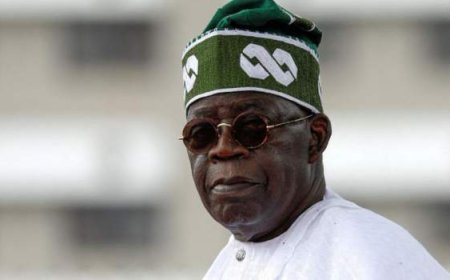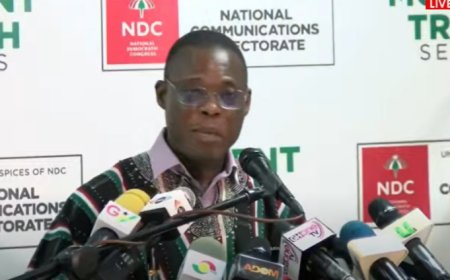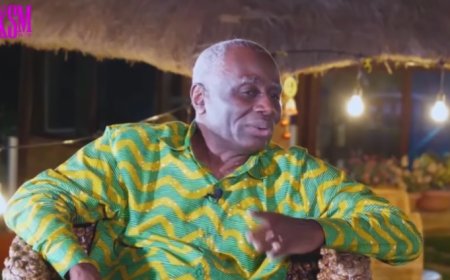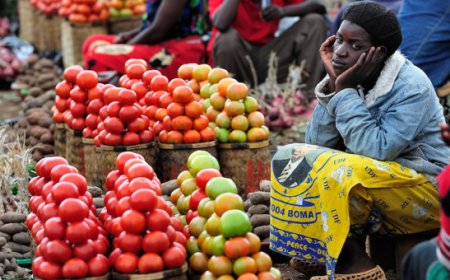Mahama Pledges to Reposition Agriculture in Northern Ghana for Development
Former President John Dramani Mahama has committed to strategically invest in the agriculture sector, positioning it as a key driver for accelerated development in Northern Ghana. During his 2024 election campaign tour in Bolgatanga, the NDC leader emphasized the need for sustainable policies to empower farmers, boost productivity, and adapt to climate change.
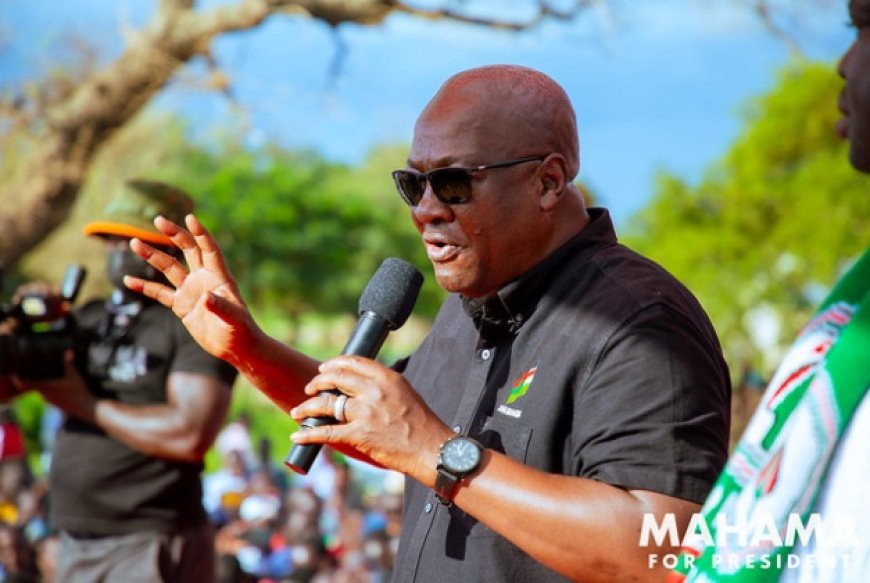
Former President John Dramani Mahama has announced a strategic plan to reposition the agriculture sector as a key driver for accelerated development, particularly in Northern Ghana. Speaking to the media in Bolgatanga during his 2024 election campaign tour, the National Democratic Congress (NDC) leader emphasized the importance of implementing sustainable policies that empower farmers to increase productivity while adapting to the challenges posed by climate change.
“We need to find a way where we can support the farmers that is more sustainable than in the past. Planting for Food and Jobs and other programmes that we had before have been shot in the dark, really not sustainable programmes,” Mahama stated.
The NDC Presidential Candidate outlined a comprehensive plan that includes providing mechanization services through the flagship Farmer Service Centres program. This initiative aims to equip farmers with the necessary tools and support to enhance their productivity. Additionally, the next NDC government would prioritize agro-processing to enable farmers to add value to their raw materials, thereby increasing their income levels.
Mahama cited the Fumbisi Valley in the Builsa South District and Yagaba in the Mamprugu Moaduri District as examples of areas with significant agricultural potential. He argued that with sustainable investment and the empowerment of farmers through modern technologies, these regions could become major food suppliers for the entire nation.
“If sustainable investment is made to develop and empower farmers with modern technologies, these areas have the potential to feed the whole nation,” he added.
In a bid to further strengthen the agriculture sector, Mahama pledged that an NDC-led government would establish a college of education specializing in agriculture, particularly around the Builsa and Yagaba areas. This institution would train teachers to provide agricultural services to farmers, ensuring a continuous transfer of knowledge and skills.
Moreover, the former President highlighted the importance of promoting locally produced crops. He proposed deliberate policies that would encourage the private sector, government institutions, and school feeding programs to prioritize purchasing from local farmers. This initiative would boost the local economy and ensure that farmers receive fair compensation for their produce.
Addressing the long-standing issue of the Pwalugu Multipurpose Dam, Mahama assured that the project, which has been on the government's agenda for several decades, would not be canceled. However, he emphasized that the project would undergo an audit to secure sustainable funding and ensure its successful completion. The dam, once operational, has the potential to irrigate about 25,000 hectares of farmland, enabling year-round agricultural production, creating jobs, and curbing rural-urban migration.
On infrastructure, Mahama acknowledged the need for improved road networks in Northern Ghana. He stated that the next NDC government would prioritize the construction of roads connecting the northern regions, which he referred to as the “ring road.” This infrastructure development is aimed at opening up the area for development and improving access to markets and services.
Mahama identified key roads such as the Bolgatanga to Tamale Road, Bolgatanga to Wa Road, the Eastern Corridor, and the Bolgatanga-Bawku-Pulmakom Road as critical routes that would receive the necessary attention to enhance connectivity between the regions and facilitate economic growth.
As the 2024 elections approach, Mahama's commitment to transforming Northern Ghana through strategic investments in agriculture and infrastructure resonates with his vision for inclusive and sustainable development.
What's Your Reaction?








